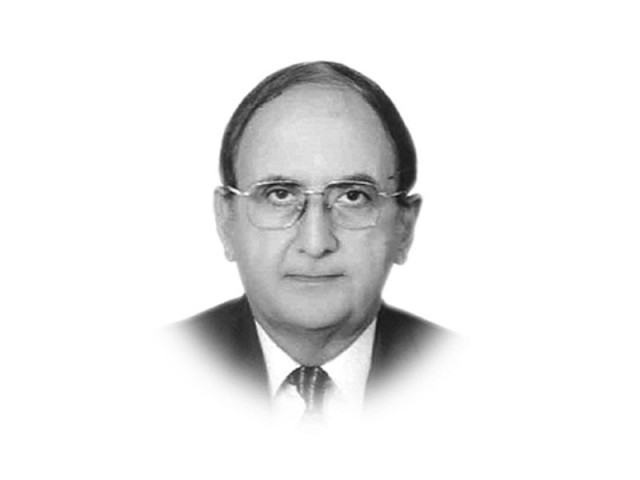Pakistan: a state or an Islamic movement?
Pakistan cannot isolate itself from the present-day international system or push forward a radical religious agenda.

The writer is an independent political and defence analyst. He is also the author of several books, monographs and articles on Pakistan and South Asian affairs
There is a strong tendency to reinterpret history in purely religious terms in order to justify the current efforts to describe the management of state and societal affairs as a function of religion. This attempt is understandable because those who want to dominate the present, often attempt to selectively control the past and use this as a justification for what they are doing today.
These trends have created doubts about the role of the state of Pakistan and how it should function at the global level. The key question is, should Pakistan function as a nation state recognised under international law and the UN charter, or should it function as a transnational Islamic movement? Should its global role be supportive of the Islamic movements initiated by hard-line radical religious individuals and groups? As radical groups view every individual and societal activity as a function of religion, they want Pakistan’s foreign policy and international conduct to be shaped by religious considerations and worldview.
If Pakistan has to function as a nation state, it needs to assert its primacy over its territory. It should not allow any group, religious or secular, to use Pakistani territory for activities that threaten other countries. Sovereignty of a state is a right, as well as a responsibility. It is a right of a state that other states should not violate its territory through military or non-military means without its consent. However, sovereignty also signifies the responsibility of a state to make sure that there is no effort to destabilise other states from its territory.
Pakistan cannot isolate itself from the present-day international system or push forward a radical religious agenda at the global level in collaboration with some militant groups. Such groups have a dichotomised view of world politics, wherein the non-Muslim world is viewed as an adversary. This approach breeds conflicts and clashes with the imperatives of the present-day international system, marked by growing interdependence and globalisation in terms of trade and investment and a flow of people, services and ideas across the territorial boundaries of states.
Pakistan’s capacity to play an effective role at the international level depends on its domestic political and societal harmony, economic resilience and positive relevance to the international system through trade and investments, soft diplomacy, cultural exchanges and contribution towards regional and global peace and stability.
It is important that Pakistan works towards peace on its borders with improved diplomatic and economic ties with its immediate neighbours. Pakistan should follow the example of China and build working economic and trade relations with India. Afghanistan should be treated as a neighbour, not as a problem that should be resolved to Pakistan’s satisfaction. The emphasis should be on economic and trade relations, societal linkages and reconstruction of Afghanistan.
Pakistan’s role as a nation state also calls upon the policymakers to control all kinds of religious extremism, militancy and terrorism. There is no use getting bogged down in the narrative of how terrorism originally started and who is now sponsoring it. There are no good militants. All have to be dealt with effectively until they accept the primacy of Pakistan’s Constitution and law.
The PML-N and the PTI are viewed as friends of the Taliban. This raises doubt over whether they can control militancy, which will adversely affect the capacity of the Pakistan government to enjoy respect and confidence of the international community. Pakistan’s success at the international level is directly linked with its domestic capacity to function effectively as the supreme authority within its territory and remove the impression that its civilian and military authorities cultivate militant groups or give space to them to survive, with the hope that these groups might be useful in the future. It needs to be recognised that the time for pursuing foreign policy through non-state militant groups has passed.
The other alternative for Pakistan is to join hands with hard-line militant movements in order to pursue a transnational radical agenda. This can prove catastrophic, both in domestic and global contexts.
In the domestic context, the state of Pakistan will be at the mercy of extremist religious groups who would create denominational coalitions that would attempt to override their rival denominational groups. This would increase internal turmoil and make Pakistan unmanageable; some parts of the country will be lost to these groups.
Radical religious movements will either attempt to use the state apparatus to pursue their transnational radical agenda or use the Pakistani territory as a base camp for pursuing their transnational agenda by all possible means, including violence. In both cases, Pakistan will lose credibility in the domestic and global contexts.
Pakistan has no alternative to establishing itself as an efficacious nation state. This calls for building a viable economy that generates employment and improves the quality of life for the common people. This is linked with the capacity of the Pakistani state to cultivate positive relevance with the rest of the world. The major prerequisite for all this is a non-ambiguous and categorical approach to quell religious extremism and terrorism.
The federal government should own military-led efforts to control terrorism. If the federal government and the military want to succeed in countering terrorism, they need to push their military and economic development strategies to their logical conclusions.
Published in The Express Tribune, June 17th, 2013.
Like Opinion & Editorial on Facebook, follow @ETOpEd on Twitter to receive all updates on all our daily pieces.












COMMENTS
Comments are moderated and generally will be posted if they are on-topic and not abusive.
For more information, please see our Comments FAQ